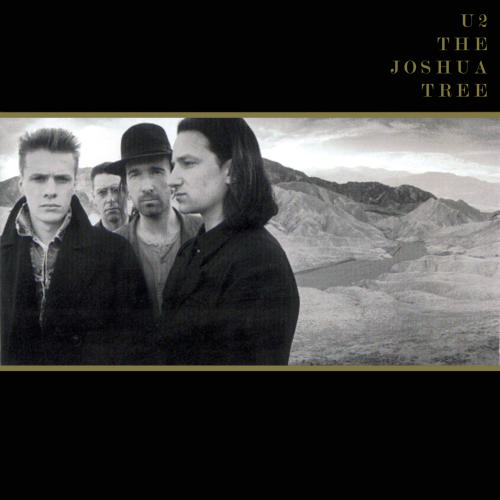
The Joshua Tree (1987)

1. Where the Streets Have No Name 2. I Still Haven't Found What I'm Looking For 3. With or Without You 4. Bullet the Blue Sky 5. Running to Stand Still 6. Red Hill Mining Town 7. In God's Country 8. Trip Through Your Wires 9. One Tree Hill 10.Exit 11.Mothers of the Disappeared
There are moments in music history where everything aligns—vision, execution, timing—and what results transcends the boundaries of a mere album. The Joshua Tree is one such moment. Not just U2’s defining artistic statement, but a towering achievement of the 20th century. That it became a worldwide phenomenon should have surprised no one. The seeds had long been planted. Early albums drew a fervent cult following, and The Unforgettable Fire cracked open the door to the mainstream. This record blew it off its hinges.
Everything here—the lyrics, the sonic landscape, the pacing, the mood—is meticulously crafted, yet it never feels calculated. It plays like a meditation, a cry, a hymn. There’s a somber quality that runs through it, yet listen closely and there’s hope in abundance. The Irish quartet, only recently acquainted with the vast, mythic terrain of America, use the Western desert as their central metaphor—both a literal and spiritual expanse, full of promise and peril.
The word that comes to mind most readily is “powerful.” Not in the bludgeoning sense, but in the conviction that pulses through every line Bono sings. He’s never sounded more urgent, more impassioned, more commanding. With or Without You, Running to Stand Still, and I Still Haven’t Found What I’m Looking For aren’t just songs—they're testimonies, confessions, prayers. And yet, much of the record is subdued in tempo. The band consciously dials back the sonic aggression in favor of spacious arrangements and emotional weight.
There are flashes of Americana throughout. Trip Through Your Wires carries a gospel-tinged twang, and In God’s Country pulses with dusty optimism. But never do these influences overshadow the band’s singular identity. This is U2 through and through—drawing from their surroundings but filtering everything through their own lens.
It’s easy to forget now, but in 1987, this album was a revelation. In an era increasingly dominated by style over substance, The Joshua Tree was a breath of deeply principled air. While it leans spiritual—and occasionally political—it never preaches. Its weight comes from conviction, not volume.
It’s also an album that demands volume. Played loud, it washes over the listener with an almost purifying force. You don’t just hear it—you feel it. No surprise, then, that the accompanying tour was a massive event. Those who witnessed it in real time knew they were watching a band not just arrive, but ascend.
If there’s a blemish to be found, it’s in what was left behind. For reasons only the band could explain, a wealth of exceptional material didn’t make the final cut. Tracks like Silver and Gold, Spanish Eyes, and Luminous Times—each strong enough to headline most records—were relegated to B-sides or tucked away on later compilations. Perhaps the band feared overloading the LP, or maybe they were hesitant to release a double album. Whatever the rationale, the eventual deluxe editions that gathered these songs were a gift to longtime fans, and well worth seeking out.
The Joshua Tree is more than a great record. It is a landmark. It defines not only a band at the height of its creative powers, but a cultural moment when music still had the power to move mountains—and move people.